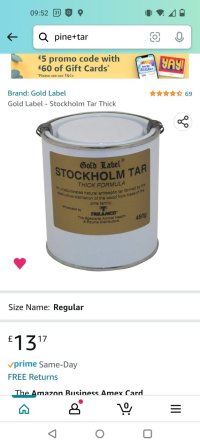Finding and supporting a real soapmaker is a good thing, but there's a lot of pleasure in making your own.
Thing is though to do it from scratch really needs a lot of care. Pretty sure British Red has a tutorial on it...perhaps on his own site ?.....but it needs equipment, it needs the right chemicals etc.,
If you want to have a go at making soap that you can add whatever you like to, then this is a very simple straightforward start.
It does need care because the soap is hot! but that apart it's simple to use.
As for the pine tar, well, there's the issue really.
If you use real pine tar your soap changes a lot. It's softer, it doesn't last well, it thickens so fast it's hard to pour it into a mould, etc.,
There are also the health issues to consider because pine tar is not generally produced for human use. It's found in farm shops and boat chandlers. It has all kinds of claims about it being carcinogenic and full of creosote.
Classic Bells restores antique sleigh bells and manufactures bell home decor. Wholesale. Retail.

classicbells.com
Most so called pine tar soap is actually just scented with essential oils of birch and a little dark colouring to immitate the old coal tar stuff.
Having made and used both, they smell the same, one lasts longer in use, and they both seem to keep the midgies sort-of off. They both smell of a campfire.
For my own soaps I buy a pure olive oil Castille base and work from there.
It takes everything from rose oil to bergamot, the addition of stuff like oatmeal and lavender, and it does fine for the tar type one too

M


